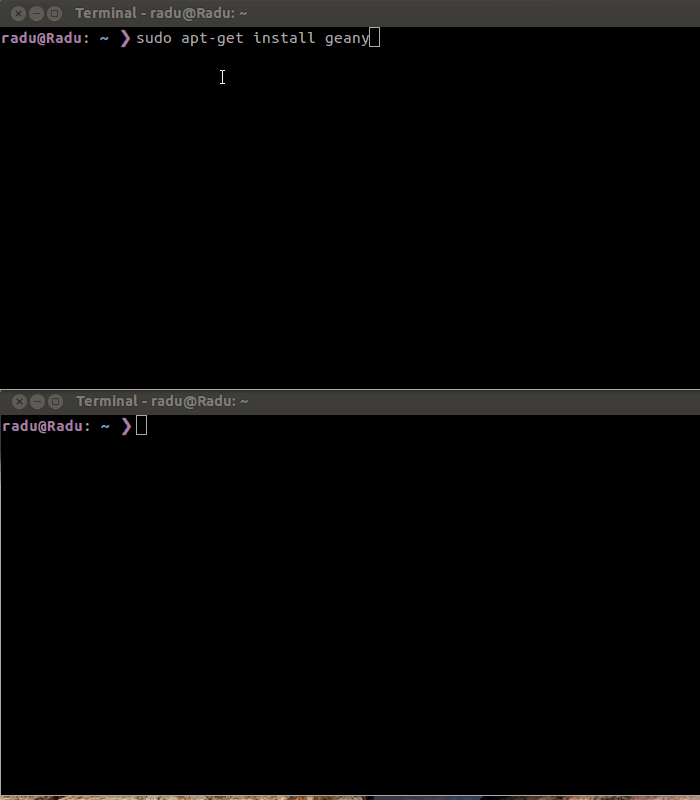How to make a package manager wait if another instance of APT is running?
Solution 1:
You can make apt-get to learn to wait if another software manager is running. Something similar with the behaviour from the next screen cast:

How I made it?
I create a new script called apt-get (wrapper for apt-get) in /usr/local/sbin directory with the following bash code inside:
#!/bin/bash
i=0
tput sc
while fuser /var/lib/dpkg/lock >/dev/null 2>&1 ; do
case $(($i % 4)) in
0 ) j="-" ;;
1 ) j="\\" ;;
2 ) j="|" ;;
3 ) j="/" ;;
esac
tput rc
echo -en "\r[$j] Waiting for other software managers to finish..."
sleep 0.5
((i=i+1))
done
/usr/bin/apt-get "$@"
Don't forget to make it executable:
sudo chmod +x /usr/local/sbin/apt-get
Before to test, check if everything is ok. The output of which apt-get command should be now /usr/local/sbin/apt-get. The reason is: by default, the /usr/local/sbin directory is placed before /usr/bin directory in user or root PATH.
Solution 2:
You can use the aptdcon command  to queue up package manager tasks by communicating with aptdaemon instead of using apt-get directly.
to queue up package manager tasks by communicating with aptdaemon instead of using apt-get directly.
So basically you can just do sudo aptdcon --install chromium-browser or whatever and while that command is running you can run it again but install different packages and apt-daemon will just queue them up instead of erroring out.
This is especially useful if you're doing a long upgrade or something and want to keep installing packages or if you're scripting something together and want to make sure installing things will be more reliable.
Solution 3:
A very simple approach would be a script that waited for the lock to not be open. Let's call it waitforapt and stick it in /usr/local/bin:
#!/bin/sh
while sudo fuser /var/{lib/{dpkg,apt/lists},cache/apt/archives}/lock >/dev/null 2>&1; do
sleep 1
done
Then just run sudo waitforapt && sudo apt-get install whatever. You could add exceptions into sudoers to allow you to run it without needing a password (you'll need it for the apt-get so it's no great gain).
Unfortunately this doesn't queue things. Given that some of apt's operations are interactive ("Are you sure you want to remove all those packages?!"), I can't see a good way around this...